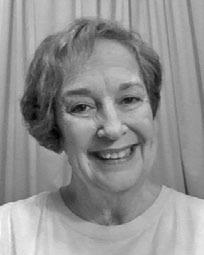CHRISTIAN LIVING TODAY
Jesus said, “I am the way, the truth and the life” (John 14:6).
Have you discerned disparity about the definition of the word truth? I surely have. And the tension produced is no new phenomenon.
I am old enough to recall life without situation ethics. There was a time when truth and ethics were similar. Today our culture is fluid, and it seems our understanding of what is true, what is applicable and what is acceptable also changes.
But today my question is personal: Have I shifted from biblical truth?
Of course, it is more comfortable to drift with culture and comfort and embrace tolerance, somewhat like the proverbial frog in the kettle.
In John 14:6, Jesus said three things in present tense:
• That He is the way, which suggests our being a traveler, or on a journey, or manners of thinking, feeling or deciding.
• That He is the truth, meaning objective truth, for He makes factual statements or realities that exist independently of personal beliefs, opinions or emotions.
• “I am the life,” referencing absolute fullness of life, both essential and ethical — real and genuine, active and vigorous, an eternal, everlasting life devoted to God.
Objective truth exists and is true regardless of what any person thinks, feels or believes about it. It is true for everyone, everywhere, with no exception.
Jesus was clear: He is truth.
Jesus’ truth means “what is true in any matter under consideration; truth in reality — in fact; what is true in things pertaining to God, morals and religious truth” (Strong’s Greek definitions). So, friends, we have references and guidelines for living, black and white in print.
People often turn to subjective meanings for truth, based on their experiences and personal interpretations. This means that their personal “truth” is their guideline for life and decisions.
The U.S. Standard Weights has the “true” pound as reference. Therefore, all pounds are compared to the true pound as a verifiable measurement, and our government has used this comparison since before the Civil War era.
We too need something to measure against and to measure from — a standard.
If weights and measurement guidelines are needful, don’t we also need this? Don’t we need guidelines for how to live life? And especially, don’t we need the truth from which to clarify all other propositions?
I think we do, lest we continue drifting. Until next week, Anita
Onarecker, an Elgin resident, author of “Divine Appointment: Our Journey to the Bridge” and minister to women and adults, earned a Master of Christian Education from Southwestern Baptist Theological Seminary in 2007.

.png)







